“At GPSS, we’re not just building power plants; we’re constructing a future where energy sustains life and diversity thrives,” says GPSS president Masaaki Meezaki
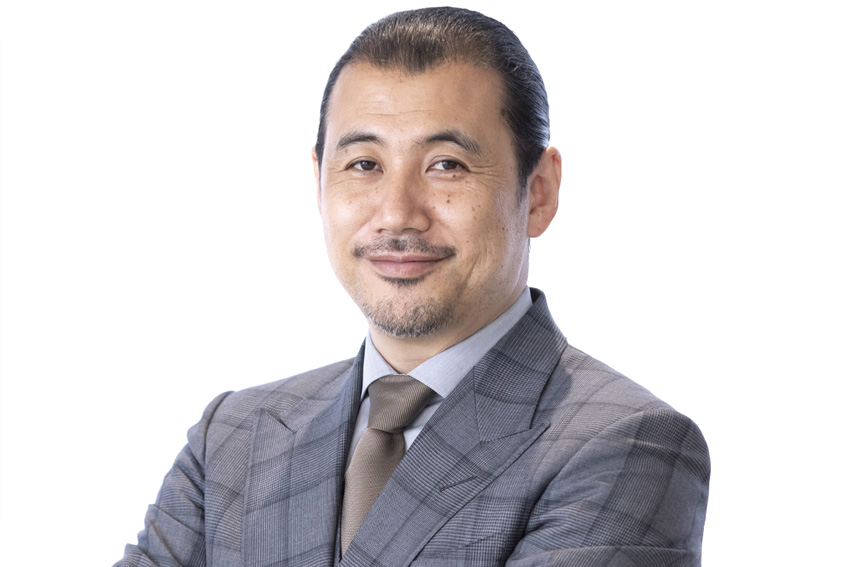
After traveling to over 100 nations around the world you founded your first company Japan Megasolar Inc. in Japan in 2012, a predecessor to GPSS. Since your first DIY solar power plant project in Hokkaido, you’ve grown into a diverse business group that has invested in many renewable energy projects. Why did you decide to start your own energy business in the first place and what have been some of the challenges you’ve had to overcome during the short history of your company?
I’ll try to keep this brief since, honestly, I can probably talk about this topic for well over 2 hours. Before starting this company, I traveled all over the world for almost 10 years, and before that, I was in banking.
I started in banking right after college and at that time I was very excited and ambitious. I had dreams of starting my own company, but I didn’t have any experience. At this point it was 1993, and if you can remember there wasn’t really any internet at the time. It was a difficult period for college graduates to just start a company. Honestly, I didn’t even have any particular ideas, I just knew that I wanted to start a company. I felt that in order to get the best experience possible that would lend itself to starting a company I had to work in the most demanding environment, and at the time I felt this was investment banking. In particular, I was interested in American or non-Japanese investment banking. When you work for a Japanese company the way you get promoted is based on a seniority system, so no matter how good you are it's impossible to rise without having seniority over your peers. I didn’t want to waste my time and wanted to rise up the ranks as quickly as possible in order to experience as much as I could. That is why I chose to work at Merill Lynch.
I was very interested in witnessing how the world economy works, especially as a fixed-income trader. I had to think about the interest rates globally as well as financial systems on a macroeconomic level. I had to think about what to expect in the future and bet on what was going to happen. At the same time, I started to feel a somewhat conflict of interest. The banking business is always about trying to expand interests at the expense of other people’s interests. I was trying to follow this creed but at the same time, I started feeling a bit bad about the situation because it became a conflict of interests. I started thinking that this wasn’t the way I wanted to spend the rest of my life. I might be able to materialistically be well off, but I was going to have to give up so much to achieve this material success. I concluded that I should give up my materialistic pursuits to find a new path. I found it difficult to find an answer to my problem since I grew up in Japan, studied in both the US and Europe, and noticed the lifestyle is quite similar. These are all developed countries where people tend to think similarly. The answer was to go to a completely different environment, so I started to think about countries like India, Africa, or Latin America. I wasn’t planning on just a few days or weeks either, I planned to spend six months to a year in these locations. I needed to spend time with the people and get the feeling of what life is really about. That is why I quit my job and became a backpacker traveling around the world.
As I traveled, I started to realize that as a traveler you look at things differently. I saw many different cultures and rituals, and my thinking eventually shifted to finding commonalities among all humans. It pushed me to think about the real purpose of our lives and the purpose of society. I quickly realized that the answer was quite simple: happiness. This is something that every human is looking for, yet how people define happiness is completely unique for each person. You could be the richest person in the world but that does not guarantee happiness. If you are not happy, there is no point in this accumulation of wealth. Happiness should be the ultimate goal for everyone.
From here I started researching happiness and how we perceive happiness. I studied social anthropology while I was traveling in London at the London School of Economics, receiving a Master’s Degree. Then I started studying cognitive science, which is all about how the brain sees the world. I thought about how the environment impacts our subjective well-being, and by subjective well-being, I’m really just talking about a more scientific word for happiness. This is why I thought that subjective well-being is very interesting. This led me to look at myself and think about my own happiness. I traveled the world, but that wasn’t enough because I felt that if I was focusing only on myself that was sufficient to fill my own happiness. I needed to interact with the whole world and gain an understanding of the value I could personally bring. Contributions to the world and society were my path to finding the answers I sought.
There are so many ways to contribute to the world. I could theoretically drop everything, go to Mozambique in Africa, and spend the rest of my life contributing to the local people by drilling wells. Well, I’m not an expert in drilling wells and I certainly don’t have a passion for that. I should put myself in a position to maximize my experience and abilities. That is why I felt that I should return to Japan because there are so many problems with the social structure that I could now see. As a Japanese person, I wanted to do something about these issues.
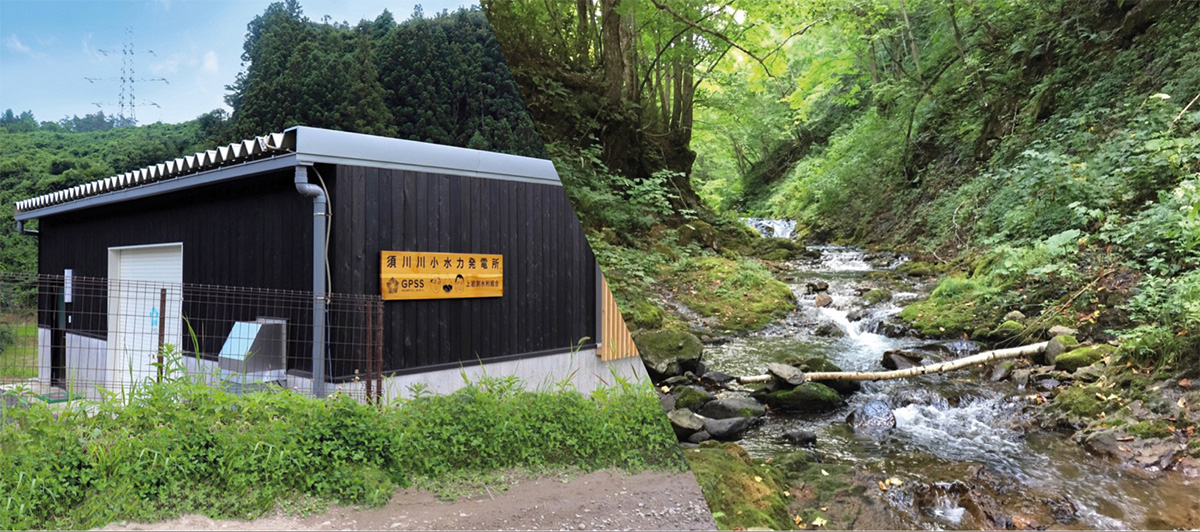
At this point, I spent two and a half years writing my book in order to communicate with the people. This is how I developed my initial ideas, and after the Fukushima disaster of 2011, there were so many issues, in particular, energy issues. Before I hadn’t even thought about the significance of energy, but after the disaster I realized that it was a big problem. Feed-in-Tariff (FIT) was introduced, and starting a business became relatively easy. I had a co-founder and he had good experience in the field. He was the business man and I was the visionary.
I found it frustrating at the time because even though I was making media appearances and talking about the issues out there, people couldn’t do anything about it and therefore they didn't care. My feeling was that if I created a little society or a company and this feeling I had coincided with meeting the co-founder. For me, fixing the working culture of Japan was important and an initial project for me. This was great because I could create a more idealistic company and the company itself is a great contributor to society. It was my feeling that with an energy business, I could limit the conflict of interest I mentioned earlier. The energy business is very different, since as we build more power plants we make more money, but as a consequence, we produce a lot of renewable energy, something that is good for society. Our expansion is good for society and for us, so it's a win-win situation. Also, the market is massive because we are talking about a global-scale energy revolution.
There are many ways to enter this business, and honestly just setting up a power plant by providing finance would not be challenging for me. The issue was that renewable energy costs were really high. Still, now certain products are quite high because the price is quite important, and that is the reason why fossil fuels have been used for so long. This is why governments introduced subsidies. We felt that we could use this incentive to reinvest in R&D to try and minimize the cost. Minimizing costs for a company is key because, at the same time, you are maximizing profit. If we try to make money while producing cheaper and greener energy there is no loser, only winners.
You might be asking why renewable energy is so expensive, and it is because of construction. I saw that procurement of solar panels was going to come down in price over time, but construction was really key here. In order to reduce the cost of construction you need to do it by yourself. I thought, “Okay, let’s do it.” Although I didn’t have any experience in the field I think that actually worked in our favor. We tried to learn from some of the best renewable producers around the world in countries such as Germany for example. We were chasing the best technologies and best solutions in order to reduce the cost, and some things succeeded and other things failed. It was a real DIY project and at some points, I was carrying solar panels and drilling piles on the ground. This philosophy of reducing costs remains with me to this day.
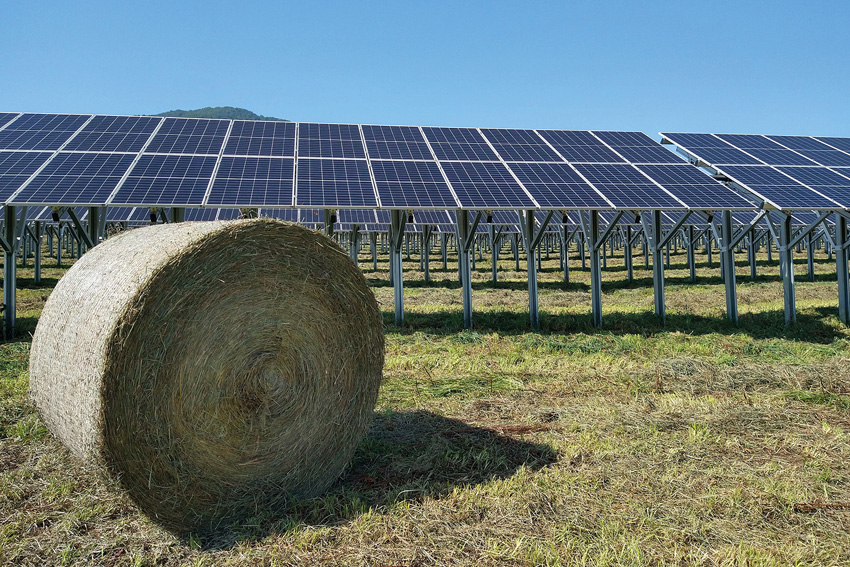
You mentioned a core reason why renewable energy is so expensive is the construction costs. Detractors will also point to other factors against renewables such as being an intermittent source of energy. The wind doesn’t blow all the time and the sun doesn’t shine for 24 hours a day. What would you say to detractors of renewable energy?
Yes, this was the next issue I faced. The solar business was the easiest for me to start, and for that reason 90% of renewable energy in Japan is solar. As you mentioned, it is inflexible and we cannot replace Japan’s entire energy mix with pure solar. This is why we thought that we needed something else to add to solar, and the initial solution we came to was geothermal. Japan has the third biggest potential in the world for geothermal and a majority of the resources are not being utilized. This is being used for hot springs not for generating power.
When we think about energy transition people always think about replacing an existing power source with something else, but when you look at the numbers, around 50% of the electricity we use is used to produce heat for activities such as cooking, hot showers, and heating systems. Currently, we produce heat by burning coal, petrol, or natural gas. In order to produce the electricity, and then send it miles and miles to convert it back to heat. It is not efficient and it is why geothermal can become a solution. Geothermal takes the heat from the ground and separates the steam to run a turbine which then generates electricity. We don’t really need to use the hot water and the majority is put back in the ground.
A good example is in Iceland where 90% of households in Reykjavik have pipelines to carry geothermal water to provide hot water from taps as well as a central heating system. Energy consumption is actually reduced to almost half. They are producing more than 100% of renewables. In Japan we are throwing hot water out and then burning trees inside, it is far from an efficient way of living. It requires a change in mindset; people need to think less about replacing energy consumption and more about how and why we use the energy. Of course, geothermal is difficult, but we believe we could achieve it.
Many tell us to use Japanese products since it is a domestic problem we are solving, but we try not to think that way. For me, the important thing is to produce energy, not to help inefficient Japanese companies. That is not my problem, that is the government's problem. Instead, we should focus on the essential part, which is to produce sustainable energy. This is why we went from geothermal to hydro to biogas and wind.
The reason why we have 5 types of renewables is because wind and solar are inflexible. Mutually, however, they can compensate for each other. Geothermal and hydro are very stable. Biogas is an adjustable type of energy. The only one we don’t do is biomass and that is because I don’t consider biomass as sustainable. When you think about it, biomass is essentially cutting down trees and burning them.
By biogas, I’m talking about the fermentation of animal manure and garbage which all produce methane. It is adjustable since whatever you don’t use can be preserved. I think it is quite convenient.
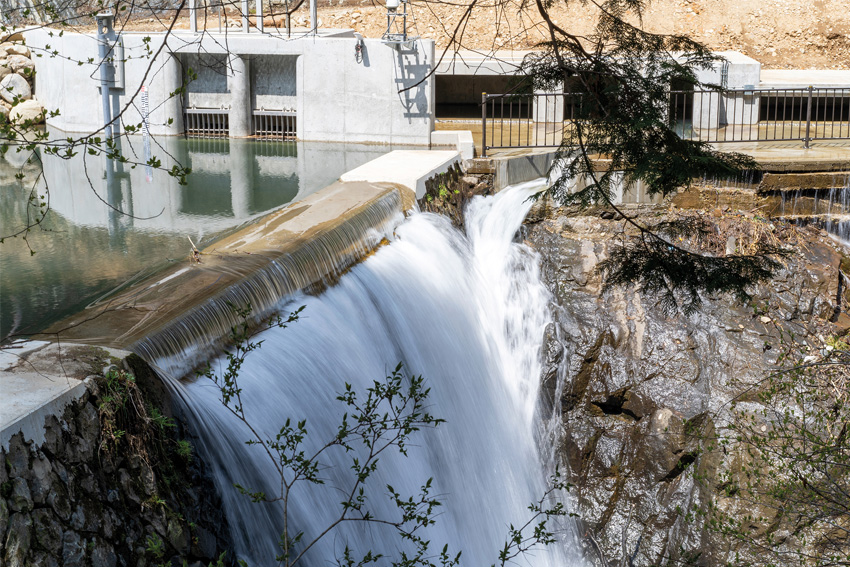
When you talk about geothermal in Japan most of us will instantly think of onsens (Japanese hot springs). Now local communities are very proud of their onsens in Japan and the idea of a power plant next to one is a very unsightly thing for many people. Have you seen opposition from local communities?
It really does depend on the community and a good example is Beppu in Kyushu. This area has some of the biggest geothermal resources in Japan, but they also have one of the biggest geothermal power plants. There are ways to co-exist. There is also a misconception that when you use geothermal power you deplete the resources of the hot spring, but this simply isn’t true. Geothermal power is coming from a reservoir much deeper, and hot springs are much shallower.
Another thing I would like to bring up is that the temperature of hot spring water is very hot, we are talking 100 degrees Celsius, and definitely, a temperature that is too hot to bathe in. What these hot spring proprietors do is expend energy to cool down the hot springs so that people can actually take a bath in the water. This is what we call a binary system and essentially it is an exchange of heat. With this vibration of the exchange of heat, you can run a turbine and generate electricity. I think this demonstrates how hot springs and geothermal energy generation can co-exist harmoniously and this is something we’ve done in Niigata prefecture. We had a joint venture with local communities where we were given hot water and we generated energy before putting the water back. Our methods don’t even touch the water, we are only utilizing heat.
Another example of regional cooperation is hydropower generation using the water flow of the Sukawagawa River in Gunma Prefecture. In the partnership project with the local community, GPSS renovated the almost 100-year-old power plant which once used to generate electricity. In addition, the renovation has also shown improvement in the intake weir and waterway, enabling the local community to have clean and easy access to the irrigation water. The project is also contributing to the maintenance and development of regional agriculture through the benefit returned to the local community.
One of the biggest obstacles for foreign investors coming into Japan with their energy projects is the sheer number of stakeholders involved. Can you elaborate on some of the diplomacy you can engage in when dealing with all of these stakeholders?
I think this speaks to our current business strategy and the hot spring community is a good example. When people try to start a project they will go to local communities and try to lease or buy properties as cheaply as possible in order to maximize their profits. There is a conflict of interest there, and I think this is where we can be different. Our business model is always looking to reduce the conflict of interest. We establish joint ventures with these local communities so that they can become a stakeholder. They are no longer against us, instead they are with us, eliminating the conflict of interest. This model has allowed us to avoid ever having opposition from local communities. We see our business as being in a unique position, and since we are private we can offer local communities the chance to share in the profits, whereas if we had an initial public offering (IPO) we could not. Again, it all comes down to a conflict of interest.
Last year GPSS and German company, CYTOK, agreed to an exclusive partnership and a joint venture where they have the exclusive distribution rights to CYTOK’s technology within Japan and Taiwan, with the aim of the rest of Asia in the future. The technology allows for the generation of 100% green electricity and the distribution of such electricity thanks to a power-to-gas component. You are also working with two local governments within Japan to introduce this technology. Going forward, how else do you plan on positioning yourself as the renewable energy leader in Japan as well as Asia?
Well, honestly speaking we like to pioneer everything we do. We are still not that big, but with our small size comes flexibility and it allows us to move fast and make decisions quickly. Additionally, our company is quite internationally minded. Realistically, I started this company with the subjective well-being of the local employees in mind. To me, having a very tolerant culture is vital, and this in turn promotes diversity. This is actually one of the biggest issues facing Japan, so in order to diversify the culture I want to hire as many nationalities as possible. We now have 26 different nationalities working for GPSS.
Obviously, different nationalities create a very diversified culture, and what we are looking for is the establishment of a more open and creative environment. Another aspect to remember is that since we have 26 different nationalities working for our company, in the future we can go to those different countries and utilize our employees as a bridge to those locations; everyone needs energy. I think that since the establishment of the company, I’ve always pushed a more international mindset. This mindset is key to communicating with global companies to complete collaborations and co-development.
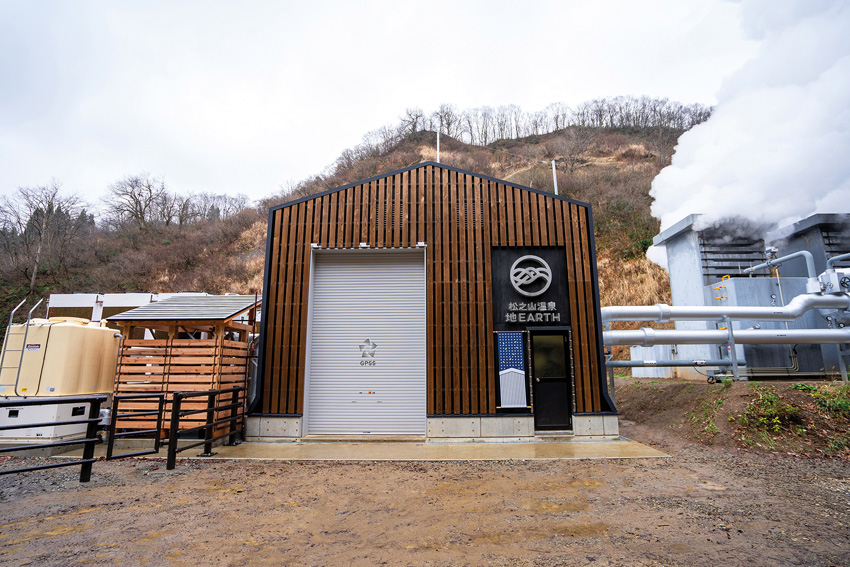
You’ve had a subsidiary in Taiwan since 2019, but you also have partners in 11 different countries. Moving forward, what is next for GPSS on an international scale? What countries have you identified as having the most growth potential for your firm?
For me, a key point is going into environments that are similar to Japan. We are really talking about isolated island nations, so that might be Sri Lanka or some of the Pacific Islands. These places have the exact same issues as we do here in Japan. I feel we can make a significant contribution to these countries.
Japan’s new energy reform allocates a significant percentage to nuclear power. What are your thoughts on nuclear and do you see it as a contributor towards Japan’s energy independence?
I try not to say too much about Japan’s nuclear policy, so I would say that I agree with it in a very passive way. I don’t think we should be building new nuclear power plants, but restarting some of the older ones under certain conditions is agreeable. It is similar to fossil fuels in that you can’t just go cold turkey and cut everything out. There needs to be a transitional period and renewables need considerable time to get off the ground.
It really depends on the timeline you are talking about. For me, I’m thinking that in 100 years we might have transitioned to 100% renewable energy, but 100 years is a long time. All of us will be long dead by then, so what we need to do is think about what we can do in between. Natural gas or nuclear could be options to bridge further towards the renewable goal.
The question I ask myself is, “Is nuclear energy sustainable?” I think that when you talk about sustainability you have to look at the longest timeline and look at the biggest impact to space. Let’s think about 1,000 years or even longer in terms of the environmental impact on the earth, now think about whether nuclear is sustainable or not. I don’t want to answer this question because I think this is more of a collective question we need to ask. I think to answer your question more directly, right now I say just let it ride, and let’s see.
Out of all of the projects you’ve been involved in, which is your favorite?
This question is more difficult than your last one because every project is different. I would say that each of the “first,” projects that I completed had some element of emotional investment. I can’t really pick one if I’m honest. It’s like asking what is my favorite energy, which is impossible since they all have advantages and disadvantages. There needs to be a balance between all of them; a harmony.
There is a lot of talk about the four challenges facing Japan; no natural resources, a reliance on imports, a high cost of energy, and a high cost to reduce greenhouse gasses. Personally speaking, I think this goes beyond just these four. The reason in the past we were able to buy fossil fuels is because of the strong JPY, however, that is changing quickly with the rapid JPY depreciation. Everything is supported by the JPY, so as long as we have a relatively strong currency we can still buy fossil fuels. This in itself really depends on the credit of the JPY, and if you look at the Japanese government’s debt it is now about 2.5 times bigger than the GDP of Japan, and 50% of that debt is owned by the Bank of Japan. This is crazy, it's like just printing money, so now we have people quoting MMT (Modern Monetary Theory) saying that as long as you print money within the same currencies you don’t get inflation, but for me, this doesn’t make any sense. Japan has the fastest aging demographic in the world and the working population is shrinking, so although right now we are not borrowing money from outside, all of the assets are going to shrink and the government’s revenue is also going to shrink. At the same, however, social costs are going to rise since the average age is rapidly increasing. Is this a sustainable model? I don’t think so. I think although I don’t think it is going to happen anytime soon, a default on Japan’s debt is a possible event. This surely means that Japan’s debt is not sustainable. Right now they can shoulder this debt because interest rates are practically zero, but imagine if interest rates rose to 5%. Half of the government’s budget is going to go to just interest payments. If you look at all the scenarios, I don’t really see a way out if I’m honest.
If anything financially happens the JPY is going to go down. This will result in massive inflation. Now think about the fact that 90% of Japan’s energy is imported, now we have a nightmare situation. This is the core reason why we are trying to build as much renewable energy as possible. At the end of the day the sun and wind are free, so if there is massive inflation the cost isn’t going to rise.
Food is another issue, and Japan imports so much food. This is why GPSS has a farming business as well. We have purchased farmland and laid out solar panels, but at the same time, we plant under the panels so we are preserving a lot of the agricultural land. We can convert to produce food on this land at any time we want.
Imagine that we come back in 2032 to have this interview all over again. Do you have any goals or dreams you would like to achieve before we come back for that new interview?
I would like to take GPSS and become one of the main players in Japan’s energy business. Not only will we be conducting energy activities but also food production, basically contributing to the essentials of life. I would also like to see us as a pioneer of promoting torrelent and diverse cultures in order for everybody to pursue one’s happiness as well as social good.
0 COMMENTS